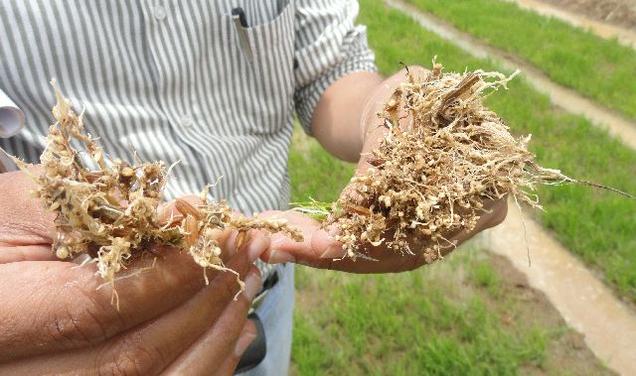BANGALORE, October 25: At a time when malnutrition is still high and food prices are fast increasing, the country is losing nearly Rs. 5,000-crore worth of nutritious vegetable and fruit crops every year due to nematode infestation and related diseases associated with soil-borne pathogens.
(Nematodes are harmful worms in the soil that affect the plant root system.)
This is only a conservative assessment as the losses due to nematode infestation and related diseases can range from 10 to 70 per cent, according to experts. The losses are extensive, particularly in the polyhouse cultivation system.
The crops that get affected severely due to nematodes and related diseases are tomato, capsicum, okra, brinjal, cabbage, cauliflower, chillies, carrot, onion, banana, pomegranate, papaya, grapes, acid lime and citrus besides flower varieties such as tuberose, gerbera, crossandra, carnation and gladiolus.
Ironically, management of nematodes is not only increasing the cost of cultivation, but also affecting the soil health and environment as it involves regular application of high dose of chemicals.
To fight this problem, the Hesaraghatta-based Indian Institute of Horticultural Research (IIHR) has developed two eco-friendly technologies involving bio-agents — useful microorganisms available in the soil.
Principal scientist in the IIHR’s Division of Entomology and Nematology M. S. Rao, who was involved in the development of both the technologies, said these technologies not only help control nematode and related problems at one-third of the cost of chemical methods, but also contribute to protecting the environment and health as they were chemical-free. These bio-pesticides also help promote plant growth as well as yield. These technologies have obtained six international patents and an Indian patent.
National meet
IIHR experts say that though the technologies were developed in 2003 and about 250 industries were allowed to mass produce them, there seems to be not much awareness among farmers about the availability of such an eco-friendly solution to the nematode problem.
The IIHR will hold a national-level meet of scientists, extension officials and farmers at on its campus on October 26 to not only popularise these technologies but also evolve a strategy to take them to the fields on a campaign mode so as to reduce crop loss.
Several top-level bureaucrats and policymakers from different States will participate in the meet.

